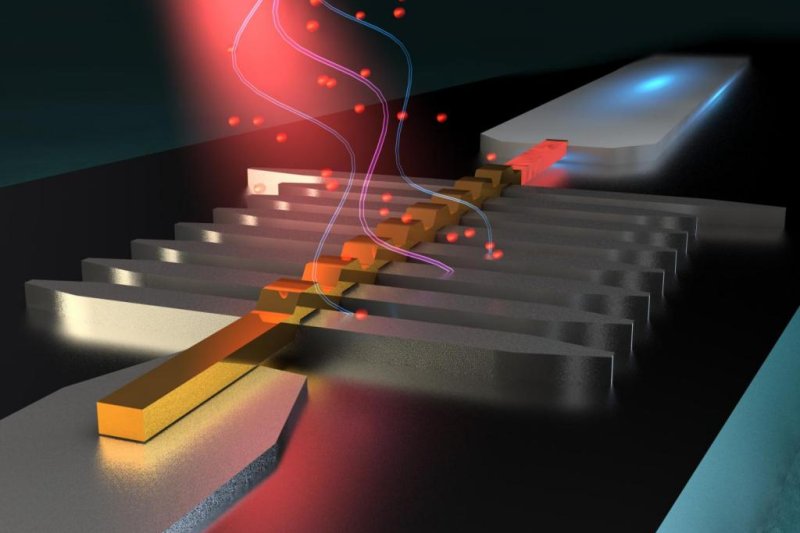An artistic rendering shows the hybrid superconductor-metal microwave detector absorbing a small burst of microwave photons. Photo by Ella Maru Sudio/Aalto University
ESPOO, Finland, July 8 (UPI) -- Researchers in Finland have created the world's smallest, most sensitive microwave detector, beating the previous record by 14 fold.
"For us size matters," Mikko Möttönen, a researcher at Aalto University, said in a news release. "The smaller the better. With smaller detectors, we get more signal and cheaper price in mass production."
The detector's design is simple -- an array of superconducting aluminum and a single golden nanowire. It is smaller than a human blood cell.
The detector absorbs photons and offers an extremely sensitive readout. It can function at temperatures as low as a hundredth of a degree above absolute zero. Energy is almost nonexistent at such frigid temperatures, but the detector was able to measure energy bursts the size of a single zeptojoule, one sextillionth of one joule.
The device uses an external energy source to amplify its readings, allowing scientists to recognize the most minuscule of thermal energy changes.
Researchers say the device could have applications in communication devices as well as superconducting quantum computers.
"Existing superconducting technology can produce single microwave photons," said researcher Joonas Govenius. "However, detection of such traveling photons efficiently is a major outstanding challenge. Our results provide a leap towards solving this problem using thermal detection."
Though the detector can't currently detect single microwave photons, researchers hope their technology will inspire detectors that can. Super-sensitive microwave detectors are needed to study the thermodynamics of small systems.
"Quantum thermodynamics may give yet another boost to technology since it deals with individual energy levels or particles, and is in this sense more precise than classical thermodynamics," concluded Möttönen.
Scientists described their new record-setting detector in the journal Physical Review Letters.















